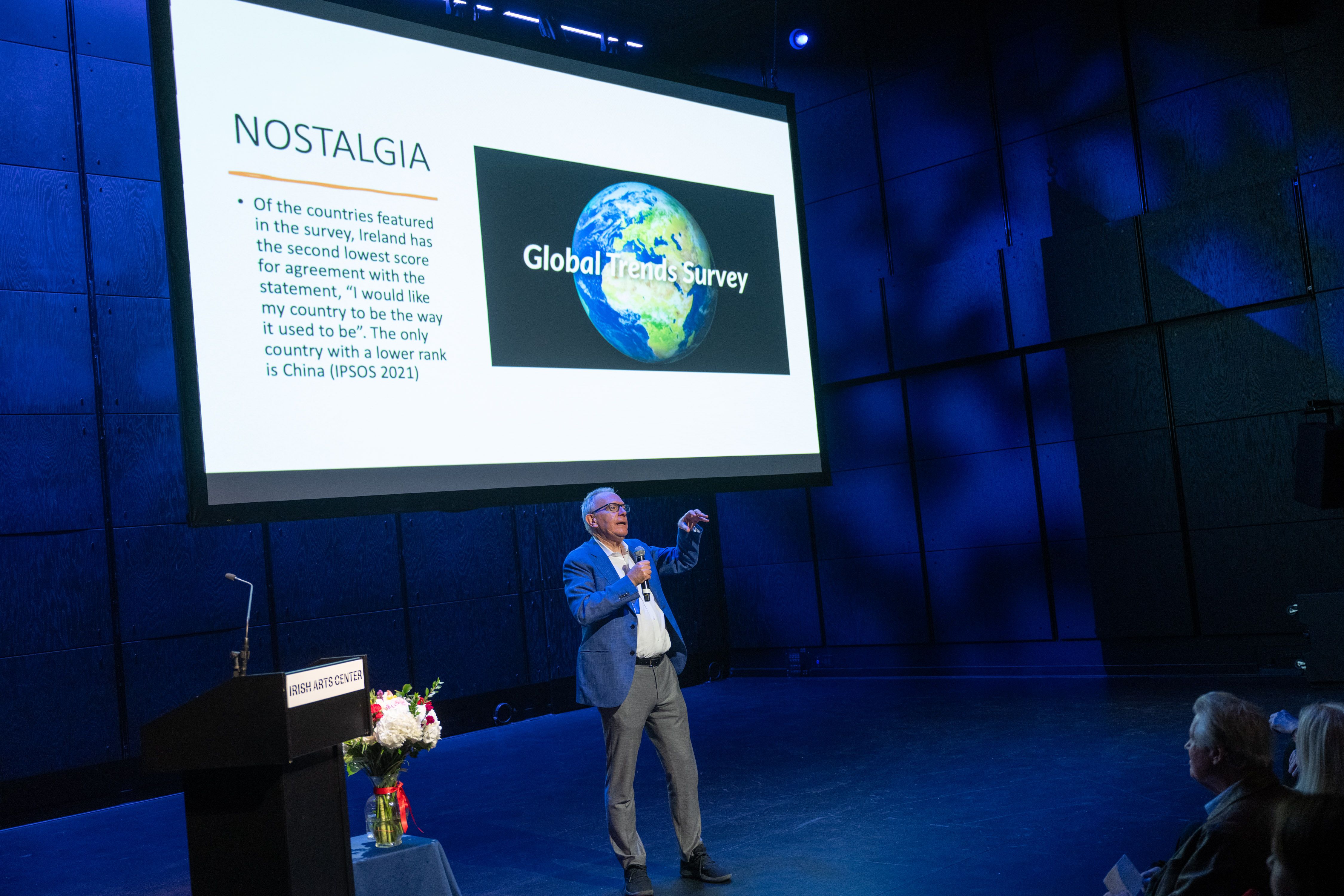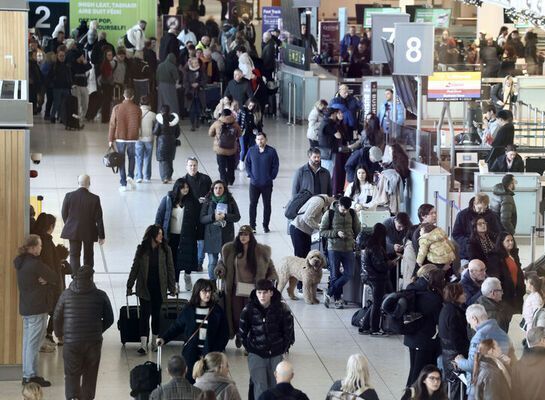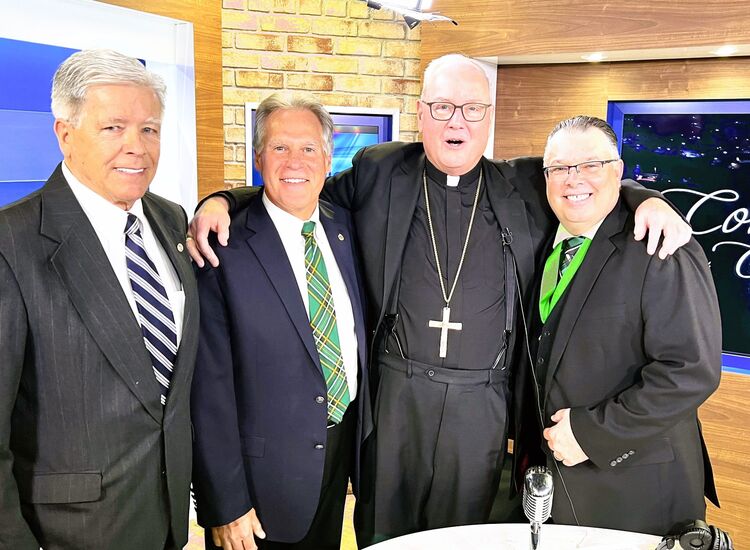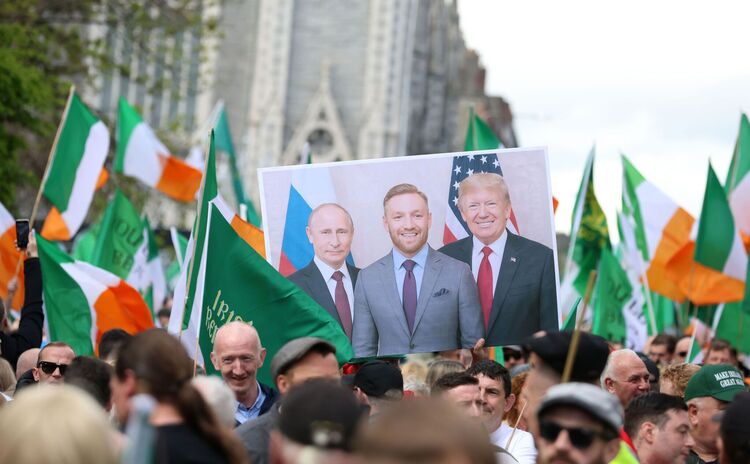Irish journalist Fintan O’Toole was at the Irish Arts Center last week to deliver a fascinating and wide-ranging talk entitled “What’s Irish Now?”, based on his best-selling 2021 memoir, “We Don’t Know Ourselves.” This acclaimed book is a very personal account of change in Ireland from the time of O’Toole’s birth in 1958 until now, charting Ireland’s course from an antiquated economic backwater riven by emigration, to become a thriving modern nation with an outward-looking economy and more people arriving to live there than leaving.
O’Toole needs no introduction in the Irish community in New York City, and such is his renown that tickets sold out before many who would have liked to attend were aware that the Nov. 6 event was even on the IAC calendar, wedged in for one night only amidst the performances of Mykel Murfi’s extraordinary drama, “The Mysterious Case of Kitsey Rainey.”
O’Toole burnished his reputation as an astute polemicist at the Irish Times in Dublin, in a career spanning three-and-a-half decades of twice-weekly columns on politics, socio-economics and history. Parallel to this he did a stint as theater critic of the Daily News, and he is a frequent contributor to The Guardian newspaper in England and the New York Review of Books.
This formidable resumé, allied with a working-class background in Dublin and a Christian Brothers education, posits O’Toole as uniquely qualified among Irish journalists to critique Ireland’s complex path to modernity from without and within. And along the way he revels in the contradictions, ironies and anomalies that were common currency in his youth as the Catholic church lost its grip on the nation’s steering wheel and the country shifted toward a more progressive and secular mode of governance. O’Toole notes Irish people’s aversion to all things English – except for their sports teams, pop music, TV shows and films. And he revisits a notorious murder case in the 1980s that triggered a nationwide manhunt for the culprit, who turned out to be a house-guest of Ireland’s attorney general. Only in Ireland.
O’Toole has mellowed over the years, and his reputation as a pitiless scourge of the clerics for their abuse of the vulnerable at Ireland’s industrial schools and Magdelene Laundries is tempered with his joy in the many positive developments he sees in Ireland now. His delight is palpable as he recounts instances of the warm welcome given across the country to immigrants, and he revels in Irish millennials’ confidence and pride in their culture, their eager participation in the revival of the Gaelic language, and their merciful indifference to the fact that the generations that preceded them were too often made to feel like second-class citizens, both at home and abroad.
O’Toole’s talk was accompanied by sporadic use of slide projections and he ended the evening with an image of an elderly gent wrapped in an Irish tri-colour, as evidence that Irish pride is contagious across national boundaries. He invited guesses from the audience as to the man’s identity, and the best we could come up with was a random shout-out of ‘"Malachy McCourt." Wrong answer, but, born in the same year as Malachy, the proud patriot was that most English of gentlemen, John Le Carré, former MI5 agent and celebrated author of ‘The Spy Who Came In From The Cold’ and ‘Tinker Tailor Soldier Spy’. Le Carré’s most significant act shortly before his death in 2020 was to take up Irish citizenship as a two-fingered salute to all those who squandered England’s credibility on the world stage through the relentless pursuit of Brexit.
For those who missed out on this entertaining evening at the Irish Arts Center, they can catch up on O’Toole’s thought-provoking discourse in his book, "We Don’t Know Ourselves," published by Bloomsbury subsidiary Head of Zeus in London, and available online and at major bookshops.









